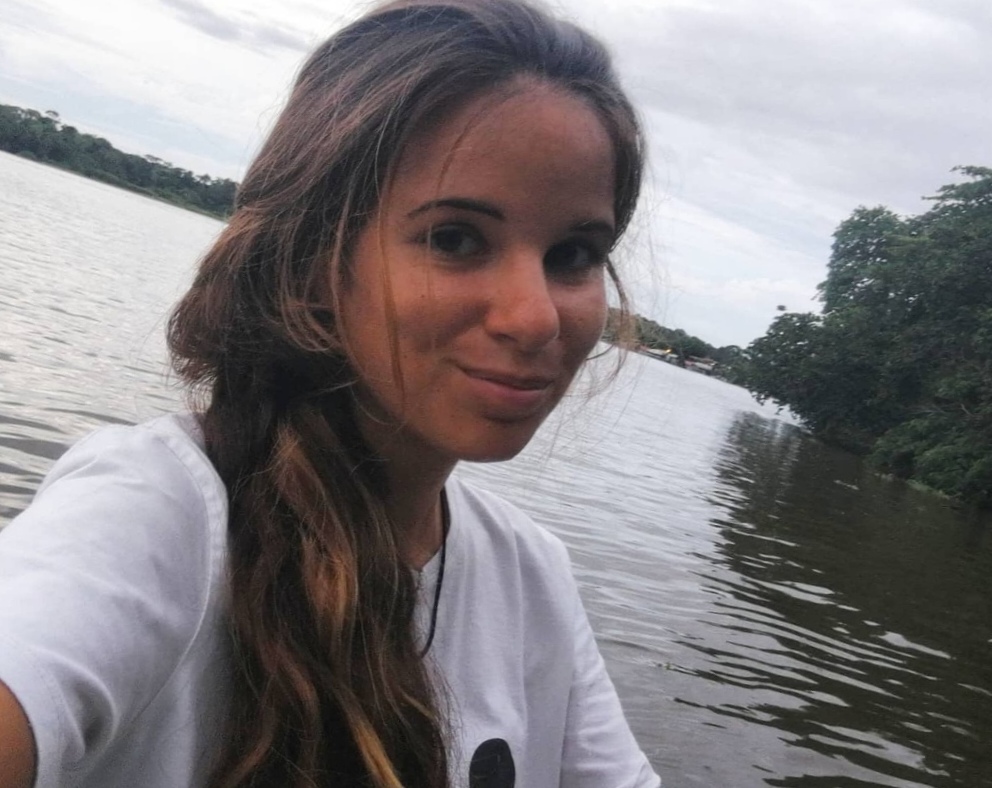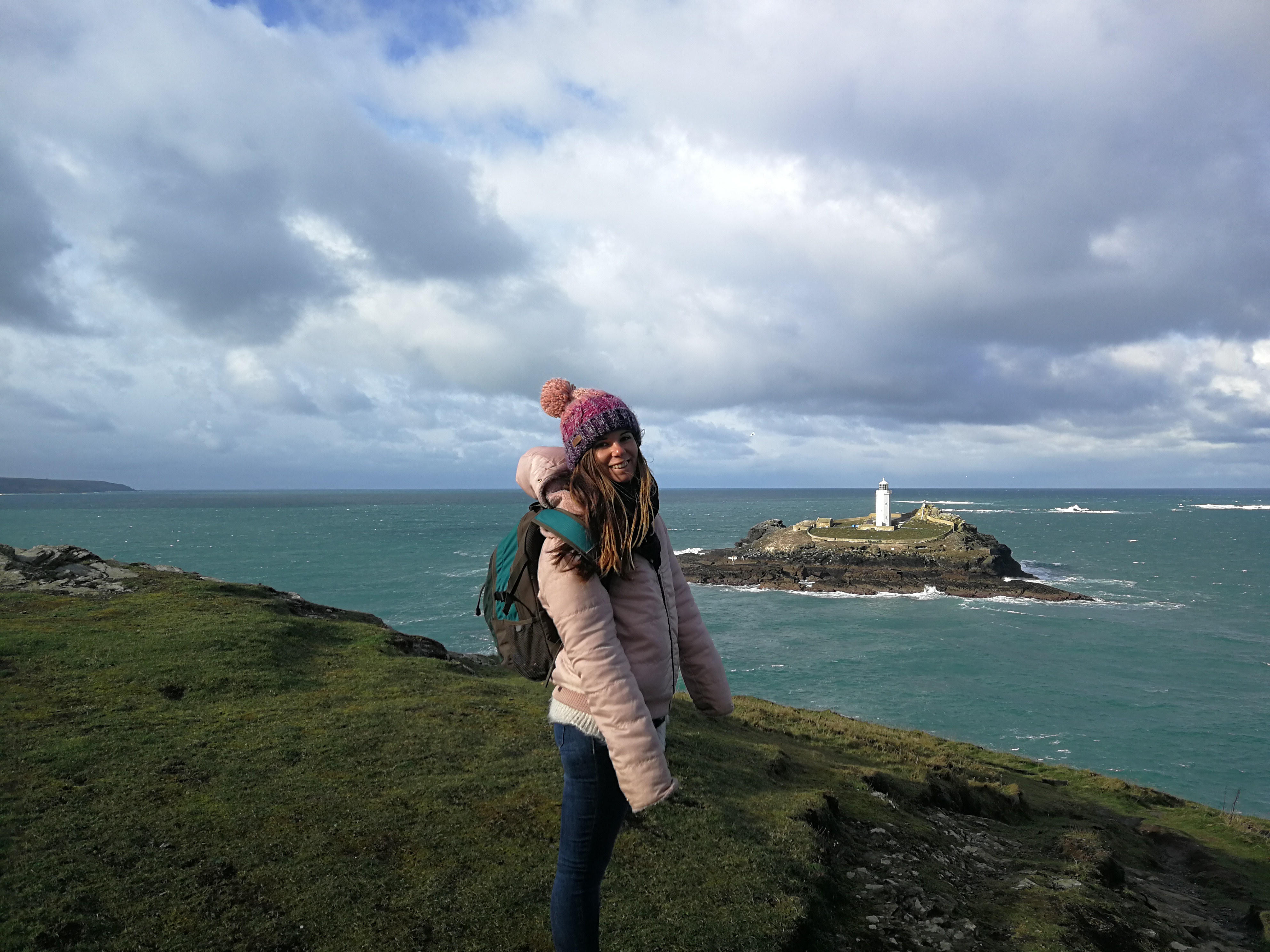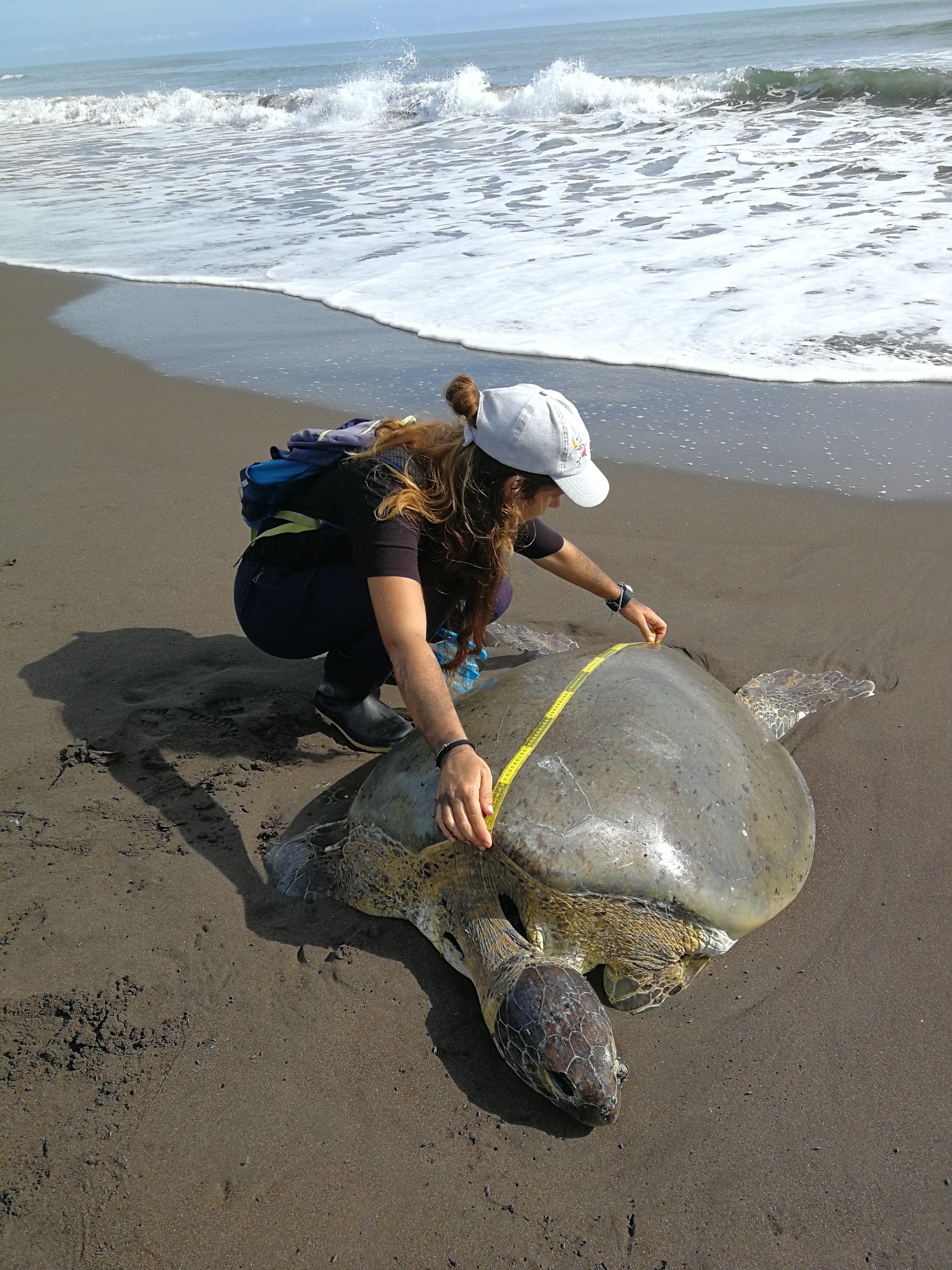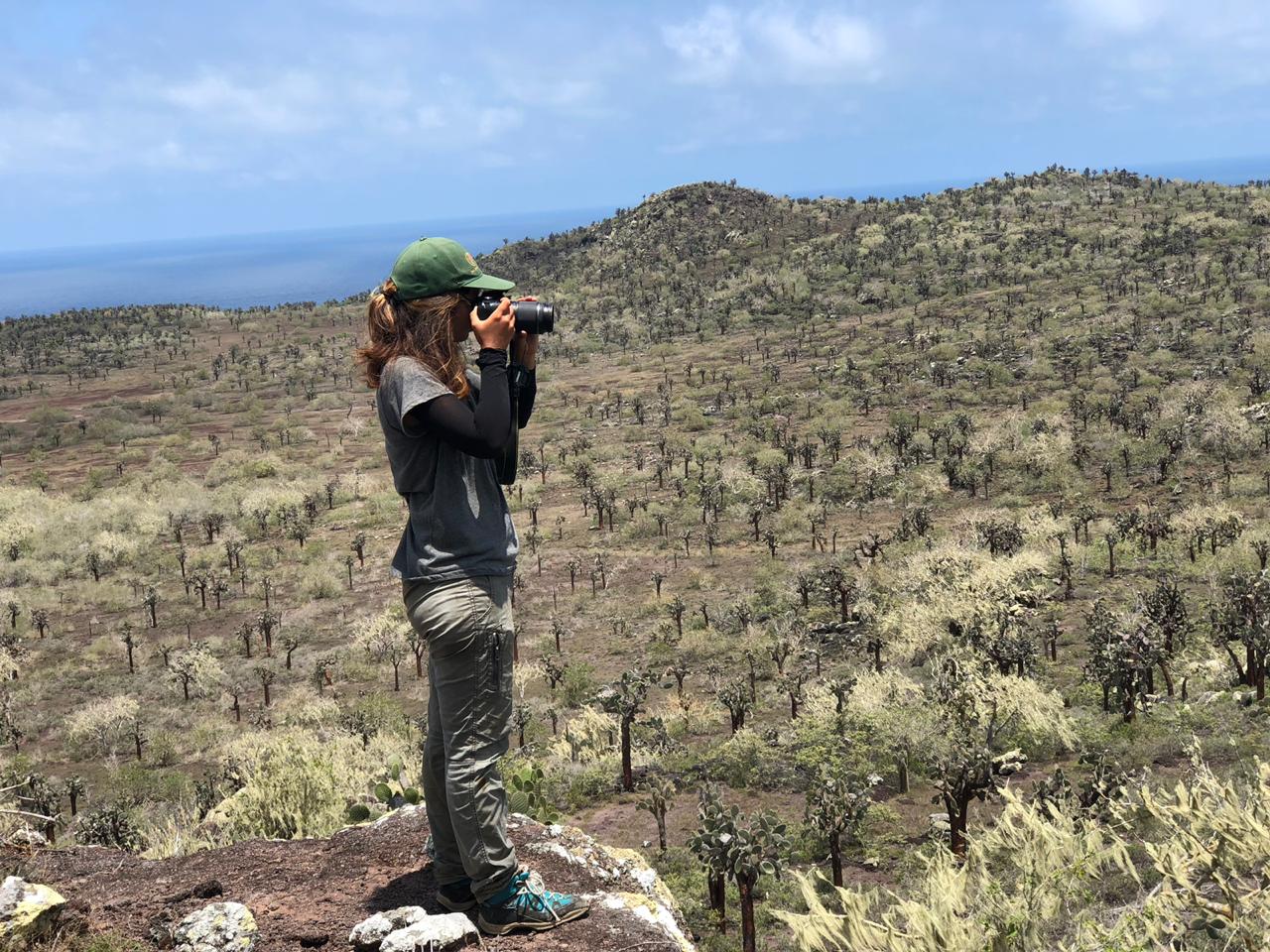We are looking back on some of our MSc graduates who have excelled in scientific research, ecology and conservation around the world since studying with us.
Today we meet Barbara who graduated from MSc Biodiversity & Conservation in 2019 and is now the Sea Turtle Conservation Program Coordinator at Osa Conservation, in the Osa Peninsula (Costa Rica).
Hi Barbara, It’s only been a few years since you studied with us, why don’t you tell us a bit about your career in that time that led you to where you are now?

After my graduation, I worked as an environmental educator in Selwo Marina, a zoo I used to work before moving to the UK. Then I was a research assistant for nine months in two sea turtle conservation projects in Costa Rica, on the fifth most important nesting beach for leatherbacks (Pacuare Reserve) and on the second most important for green turtles (Tortuguero). Then I came back to Spain to spend some time with my family before travelling again to Costa Rica to coordinate a sea turtle conservation program in the Pacific coast of Costa Rica.
What attracted you to study your MSc at the University of Exeter, Penryn Campus?
Because of the course content, and the relevance and reputation of the University and MSc. I also found very promising the possibility of meeting and making connections with many well-recognised conservationists and organisations. I always had in mind doing my master’s in the UK, and before applying, I asked for recommendations on LinkedIn about the courses that interested me the most. Everyone agreed that University of Exeter was the best place to study a postgraduate programme on Biosciences, so I relied on their opinion and I am glad I did.
We are pleased you are glad you studied with us here, what did you enjoy most about studying in Penryn?

Penryn Campus had everything I could ask for. I don’t like very big ones, so I really enjoyed having all the facilities that close from each other. I spent most of my time in the library, and I actually liked studying and working there until late. The atmosphere, staff and facilities were great as well. Out of campus, my favourite hobby was going to the huge ASDA supermarket with my friends, although I usually didn’t buy anything!
Penryn is pretty small, but Falmouth is only one hour walking far away, and you can find everything there, including beautiful beaches. Cornwall is one of the most beautiful places in the UK and supposedly, where you can find the best weather. Although I had never spent so many weeks without seeing the sun, I really enjoyed the marine module field trips and activities that the Students’ Union societies organised around.
How do you think the MSc helped to prepare you for your career?

The MSc Conservation and Biodiversity provided me a lot of insights from a wide range of aspects. For example, I knew nothing about writing grant proposals, however now I am a research fellow in a biodiverse paradise doing what I love thanks to a successful funding proposal. Moreover, I am a non-native English speaker and doing this course was not easy at all. It was very challenging, but also made me grow and realise that with dedication and effort I could accomplish whatever I wanted. The lecturers are all very inspiring and passionate about their work. It was nice to see how they get to convey their feeling for conservation, what really influenced me to pursue my goals. Every week we could attend many seminars from different conservationists and founders of national and international NGOs to learn from every aspect of Biosciences.
Why did you choose a career in conservation and what are your aspirations for the future?
I have always loved animals, but it wasn’t until I volunteered in the Galapagos Islands in 2017 that I realised I wanted to dedicate my life to wildlife conservation. Doing my master’s programme at University of Exeter reaffirmed my vocation, and I am determined to keep instructing myself and contributing to the beautiful, but tough pathway of conserving threatened species and ecosystems. It was in Costa Rica where I discovered that protecting turtles and their nests was the most rewarding experience I have ever lived, and I aim to keep feeling that I am contributing to this species survival. I would like to dedicate my time to help save them from extinction through fieldwork, environmental education and research.
Lastly, do you have any advice for students wishing to pursue a similar career?

Always follow your dreams and never stop trying to achieve your goals. Nowadays, it seems very hard to find a job, and even after graduating from a master’s we may need to get an unpaid position to keep gaining experience. I think that best things don’t usually come easy or fast, and it is important not to lose hope. If you really want something, never give up and do your best to get there because one day you will find yourself in that place doing what you are passionate about.
Thank you Barbara!
If you want to read more profiles from MSc Biodiversity & Conservation graduates follow this link or explore our Graduate in Focus homepage to learn more about the degree programmes we have on offer!

